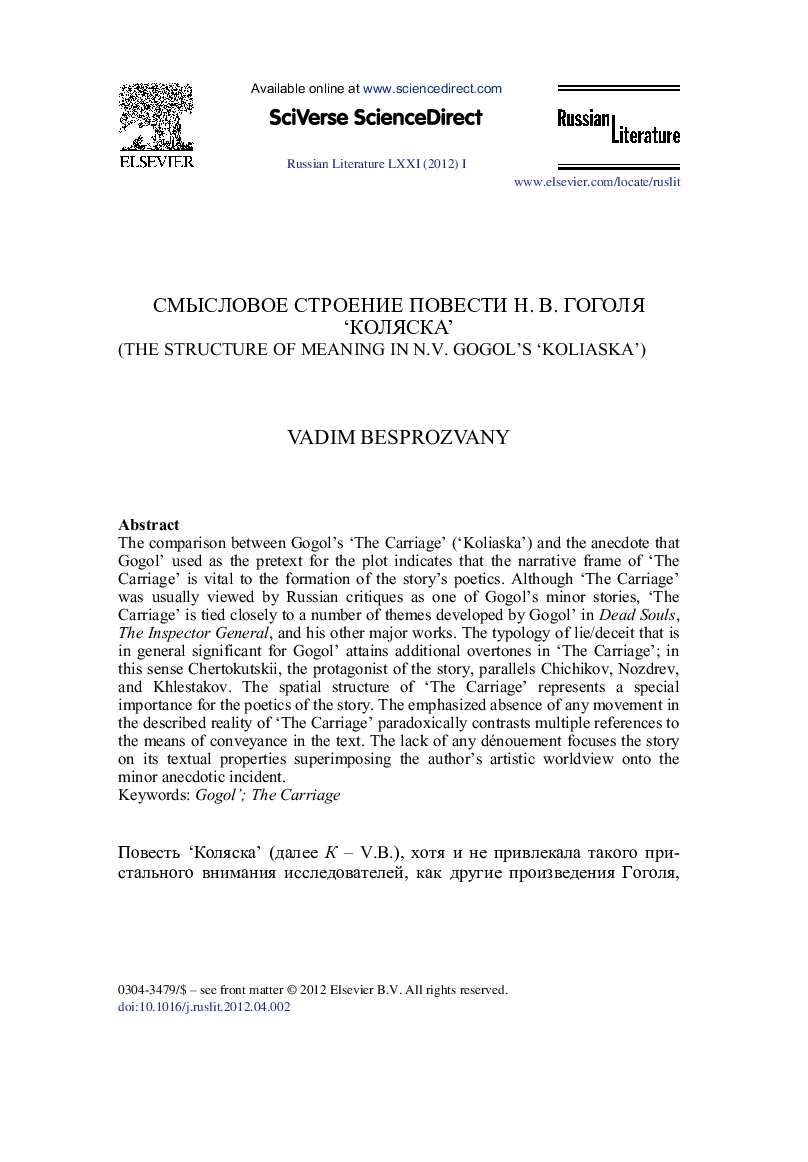| Article ID | Journal | Published Year | Pages | File Type |
|---|---|---|---|---|
| 1103965 | Russian Literature | 2012 | 16 Pages |
The comparison between Gogolʼs ‘The Carriage’ (‘Koliaska’) and the anecdote that Gogolʼ used as the pretext for the plot indicates that the narrative frame of ‘The Carriage’ is vital to the formation of the storyʼs poetics. Although ‘The Carriage’ was usually viewed by Russian critiques as one of Gogolʼs minor stories, ‘The Carriage’ is tied closely to a number of themes developed by Gogolʼ in Dead Souls, The Inspector General, and his other major works. The typology of lie/deceit that is in general significant for Gogolʼ attains additional overtones in ‘The Carriage’; in this sense Chertokutskii, the protagonist of the story, parallels Chichikov, Nozdrev, and Khlestakov. The spatial structure of ‘The Carriage’ represents a special importance for the poetics of the story. The emphasized absence of any movement in the described reality of ‘The Carriage’ paradoxically contrasts multiple references to the means of conveyance in the text. The lack of any dénouement focuses the story on its textual properties superimposing the authorʼs artistic worldview onto the minor anecdotic incident.
